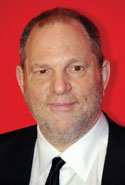Amid the growing allegations of the Harvey Weinstein sexual misconduct scandal, it recently came to light that Weinstein’s former attorney, David Boies, had agreed to contract with a private investigator firm, Black Cube, on Weinstein’s behalf. Black Cube performed work aimed at stopping the publication of an article about Weinstein that was being written by another one of Boies’s then-current clients, The New York Times. Since Boies’s relationship with Black Cube was revealed, The New York Times has severed its relationship with his firm. Boies said at the time that when he signed the subject contract he was told the purpose of hiring Black Cube was “to ascertain exactly what [an] actress was accusing Mr. Weinstein of having done.” According to Boies, he and his firm did not “select the investigators” or “direct their work.” However, his firm paid Black Cube and passed along its reports to Weinstein.

Insofar as Black Cube’s work was meant to discredit the reporting of The New York Times without its knowledge of and consent to this work, were Boies’s actions ethically permissible? The answer would appear to be no. California Rule of Professional Conduct 3-110 prohibits a member from “intentionally, recklessly, or repeatedly fail[ing] to perform legal services with competence.” This duty extends beyond the members themselves to both their employees and agents. (See, e.g., Rules Prof. Conduct, rule 3-110, discussion [“The duties set forth in rule 3-110 include the duty to supervise the work of . . . non-attorney employees and agents.”]; Black v. State Bar (1972) 7 Cal.3d 676, 692.) In sum, once an attorney chooses to utilize an employee or agent to perform services for his or her client, that attorney is obligated to supervise the employee or agent to ensure the work is performed competently. This includes ensuring such persons comply with the Rules of Professional Conduct when acting on behalf or at the direction of the attorney. (See Palomo v. State Bar (1984) 36 Cal.3d 785, 796.) (Boies also included advanced conflict waiver language in his engagement agreement with The New York Times, the validity of which is not addressed here.)
Pursuant to the Black Cube contract, its work was meant to “help” Weinstein’s “efforts to completely stop the publication of a new negative article” by The New York Times, Boies’s then client. Although Boies has since stated the retention of Black Cube was in his view “a reasonable accommodation for a longtime client,” he also conceded that it was a “mistake.” The New York Times considered Black Cube’s work “a grave betrayal of trust.” While other details and facts may emerge, these circumstances demonstrate the care attorneys should exercise in evaluating and hiring third parties for or on behalf of a client. Whether the outside party is a private investigator, forensic computer expert, or certified public accountant, the hiring attorney should exercise sufficient control over the scope and type of work being performed. Failing to do so may violate Rule 3-110.
About the author
Ryan Stahl is an associate at Scherer Smith & Kenny. He practices civil litigation, with a focus on employment law and anti-SLAPP litigation.


